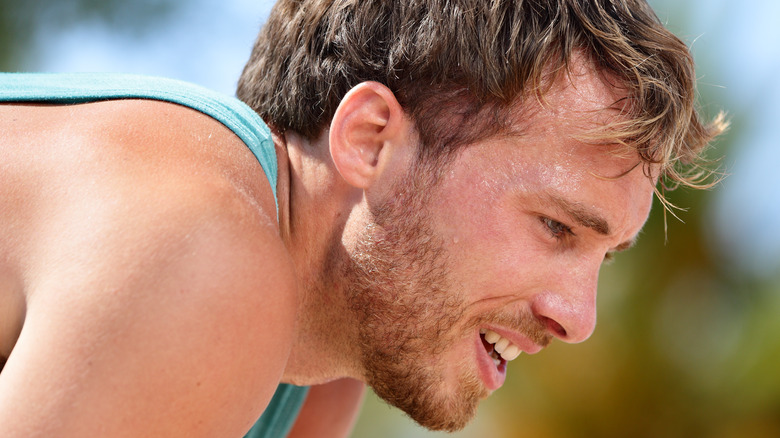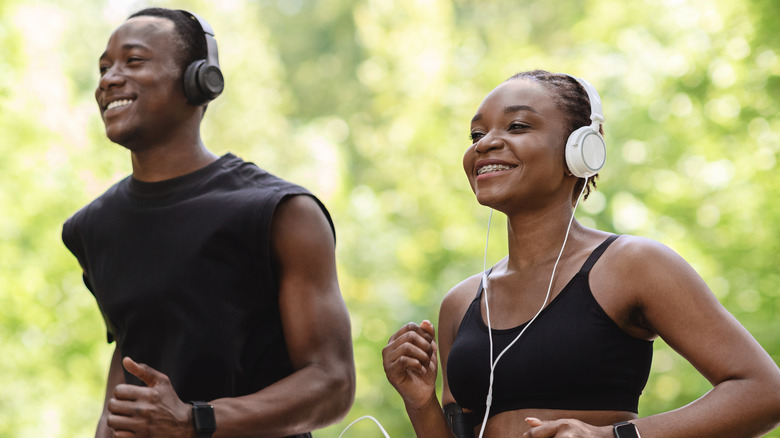The Surprising Way Your Face Can Affect Your Run
Before heading out for your early morning run, you should make sure a few things are in order. You'll want to double-check that you have on the right shorts, shoes — and believe it or not — the right facial expression. Of all the myriad of things that can affect the quality of your jog, your face is one of them.
Our face is one of the foremost ways we as humans use our bodies to express ourselves. The nuances of our facial expressions can reflect a seemingly endless number of emotional states. When split into the simplest of categories, emoting from the face signals to others a message of either approachability or avoidance, according to a 2015 study published in Frontiers in Psychology.
Research has shown that facial expressions associated with negative emotions, such as anger or hatred, signal to observers to stay away. Conversely, because smiling is generally associated with positivity, frequent smilers often have more fulfilling social relationships. This is due to the fact that people are naturally drawn toward those perceived as friendly and approachable (via Social Psych Online). But facial expressions don't just affect those around us; they also influence our own personal emotions. In fact, links have been found between facial expressions and levels of internal motivation — an important quality when it comes to running.
A smiling face makes for a better run
Although running requires concentration like many physical activities, a degree of relaxation is also required for optimal success. While a tense facial expression reflects the physical and mental energy you're channeling into your form, the expression may actually be doing more harm than good. "Tension in the facial region can often translate down into the shoulders, upper back and arms ... [so] there's a good chance your shoulders are up by your ears, and your arms are held in a stiff, tight alignment as well," Janet Hamilton, clinical exercise physiologist, told Livestrong. She explains that running with tense muscles can actually slow your pace rather than quicken it.
To achieve relaxation while jogging, runners should consider donning a smile while exercising. A 2018 study published in the Psychology of Sport and Exercise journal examined the levels of exertion in 24 skilled runners after they were asked to complete a series of running tasks while displaying different facial expressions. The research indicated that the smiling runners ran more efficiently and with lower rates of fatigue than runners who wore a frown. Next time you hit the pavement, throw on your favorite pair of sneakers along with a smile, and you may just find yourself running like the wind.


